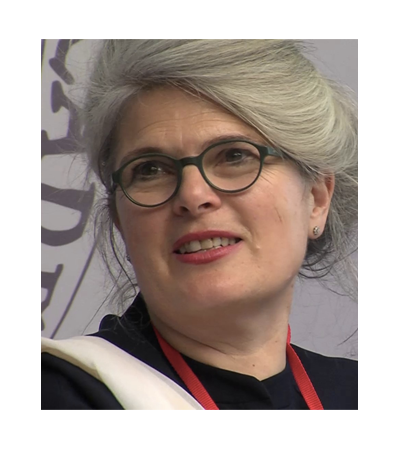- Apr 13, 2020
- 00:05:34
History of Science ON CALL: Angelika Messner
- Angelika Messner
- Research Communication and Management
- History of Science ON CALL: Listening, Attending, Acting
 Sinologin und Historikerin Prof. Dr. Angelika Messner zu folgenden Fragen bei History of Science ON CALL:
Sinologin und Historikerin Prof. Dr. Angelika Messner zu folgenden Fragen bei History of Science ON CALL:
- Was lässt sich aus der chinesischen Medizin- und Wissensgeschichte zu Epidemien sagen?
- Was sind die größten Fragen oder persönlichen Herausforderungen, die die gegenwärtige Krise für Forscher wie Sie aufwirft?
- Wie hängt Ihre Forschung von Kollaborationen ab oder wie trägt sie zu ihnen bei?
- Welche Erkenntnisse über die Rolle der Geisteswissenschaften können wir durch die aktuelle Krise gewinnen?
- Welche weitere neue Idee möchten Sie zur Diskussion stellen?
Profil: Angelika Messner
Prof. Dr. Angelika C. Messner leitet das Chinazentrum an der Universität Kiel. Sie befasst sich mit der Wissens- und Wissenschaftsgeschichte im chinesischen Kontext, mit Blick auf die Verflechtungsgeschichte zwischen Asien, Europa und Amerika. Im Zentrum ihrer Aufmerksamkeit steht die Frage nach Relationen zwischen Wissen und Handeln: Welche Dinge werden wie zu Objekten des Wissens und wie verhalten sie sich im sozialen Raum?
Über das Projekt History of Science ON CALL
History of Science ON CALL sammelt und verdichtet zwei Informationsströme—Forschung and Bildung—die für Krisen, einschließlich langwieriger Notstände, relevant sind. Der Bereich Forschung besteht aus kurzformatigen Videointerviews, während der Bereich Bildung vorhandene Ressourcen und Materialien - wissenschaftliche Lehre und Unterrichtsmaterialien - sammelt und präsentiert, um ihre Reichweite zu vergrößern.
